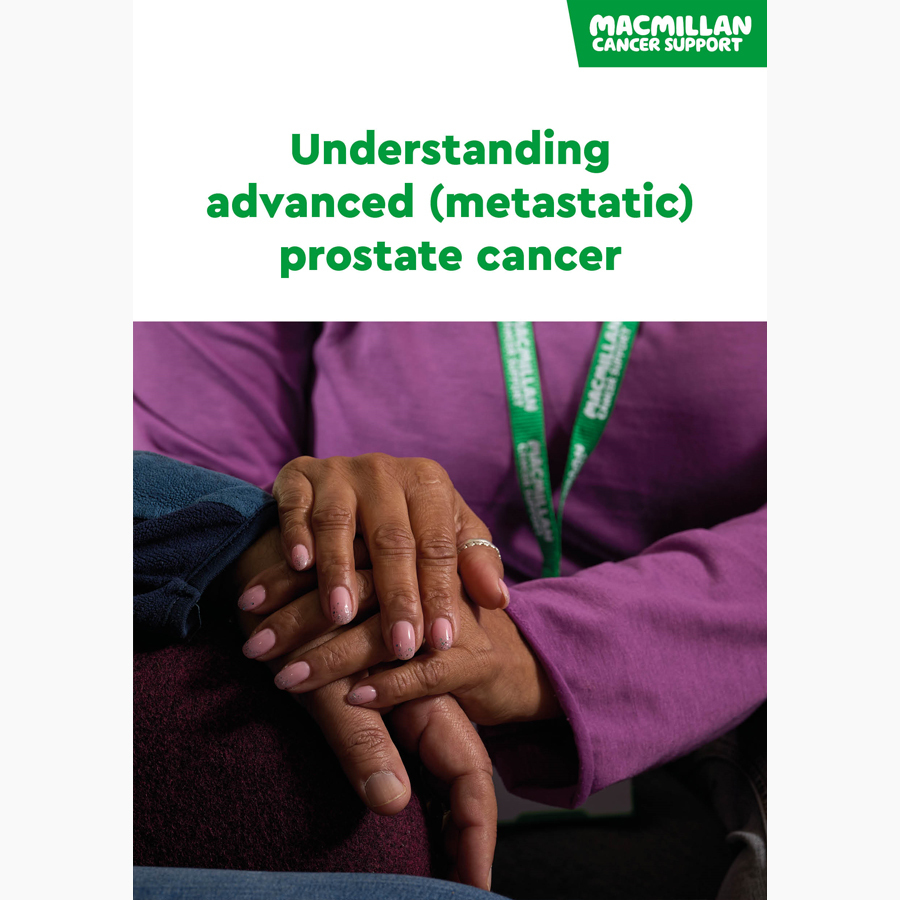Joe Biden's prostate cancer diagnosis: Information and how Macmillan can help if you're affected by cancer
In this blog, we share answers to questions people might have about prostate cancer after hearing Joe Biden’s news.
Joe Biden’s prostate cancer diagnosis
The former US president Joe Biden was diagnosed with prostate cancer after doctors found a lump on his prostate during a routine check-up.
After further tests, his medical team have confirmed it is prostate cancer and has spread to the bone.
We know people will have questions after seeing Joe Biden’s news, so in this blog we’re answering some of the questions people might have.
Everyone here at Macmillan is sending our very best wishes to Joe and his family.
What are the symptoms of prostate cancer?
The prostate gland can also become enlarged due to a prostate condition called benign prostatic hyperplasia (BPH), which is non-cancerous.
The symptoms of benign (non-cancerous) prostate conditions and prostate cancer are similar. They can include:
- needing to pee more often than usual, especially at night
- difficulty peeing – for example, a weak flow or having to strain to start peeing
- feeling like you have not completely emptied your bladder
- an urgent need to pee
- blood in your urine or semen
- rarely, pain when peeing or ejaculating.
If you have any of these symptoms, it is important to have them checked by your doctor. Your GP can do tests to find out if you need a referral to a specialist doctor.
We have more information about prostate cancer including risk factors and tests.
Related pages:
What is a Gleason score?
You may have seen the Gleason score mentioned in the news. This examines the pattern of cells in the prostate tissues and grades them from 1 to 5. The most common and highest grades are added to give what is known as a Gleason score.
We have more information about this on our page about staging, grading and risk groups for prostate cancer.
What is advanced prostate cancer?
Advanced prostate cancer is where cancer has spread to other parts of the body. It is also known as secondary or metastatic prostate cancer.
After the lymph nodes, the most common place for prostate cancer to spread to is the bones. Prostate cancer may spread to bones, such as the spine, pelvis, thigh bone (femur), or ribs.
We have more information about advanced prostate cancer and living with advanced prostate cancer.
Support for people who have been diagnosed with prostate cancer
Talk to our nurses and advisers on the Macmillan Support Line
At Macmillan we want to ensure everyone receives the care they need. If you have questions about prostate cancer, we have specially trained nurses on our free, confidential Macmillan Support Line.
Call us on 0808 808 00 00 or chat with us online 8am-8pm Monday-Sunday.
Connect with others on the Online Community
Macmillan’s Online Community has a dedicated prostate cancer forum - a group for anyone affected by prostate cancer to share experiences and ask questions. Whether you or someone you know has been diagnosed, here you can discuss treatment options, side effects and anything else that’s on your mind.
Sign up to our Macmillan Buddies
We also have a Macmillan Buddies service – we understand going through cancer can be an isolating experience at any time. Our free Macmillan Buddy service (formerly called Telephone Buddies) is here for you. We'll match you with someone who understands what you're going through, and they'll give you a weekly telephone or video call.
Read trusted, expert information
We have information about cancer types and treatments as well as about the impacts cancer can have on things like money or your emotions. Our cancer information is available in 16 languages and different formats.
About our information
This information has been written by our senior medical editors and revised and edited by the Digital Content Team.
Learn more about how we produce our cancer information.
Read more
-
Blogs 29 Apr 2025In this blog, we discuss ways people with cancer can get support to meet their spiritual needs and how to have conversations about your spirituality, religion and faith with your health care team.
-
Blogs 02 Jun 2025Learn more about Safeena, a Muslim-focused cancer support organisation founded in 2023. They are helping to provide culturally sensitive and faith-informed support for people affected by cancer.
-
Blogs 05 Jun 2025Find local cancer support services near you with our simple online search. From emotional support to practical help, get the support you need.






